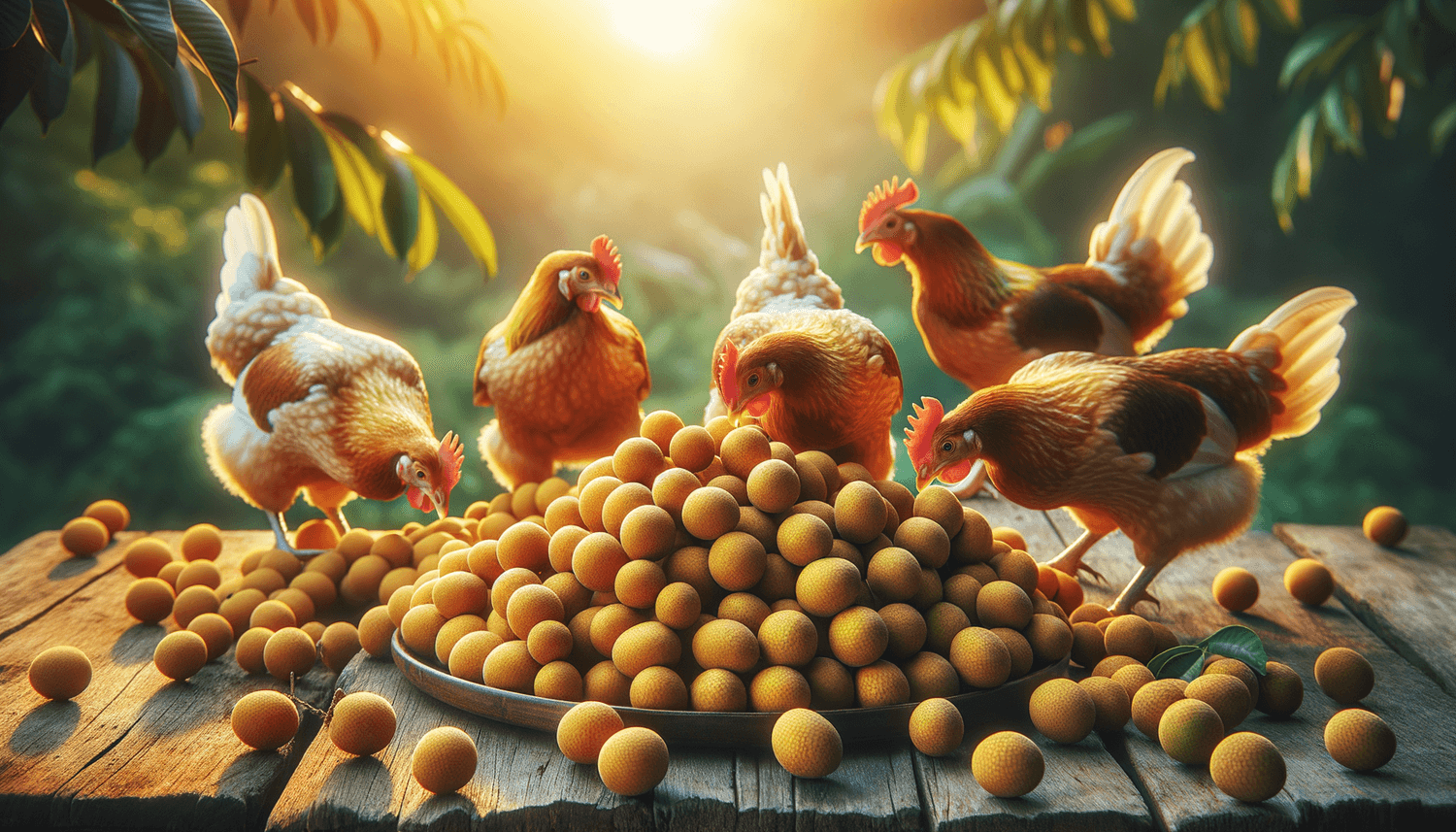Ever wondered if your feathery backyard companions can indulge in the sweet and tropical taste of longans? Well, you’re in luck! In this fun and informative blog post, we’ll dive deep into the world of chickens and longans, exploring whether it’s safe for our clucky pals to enjoy these delicious fruits. We’ll discuss the importance of a balanced diet, the potential benefits and risks, the nutritional value of longans, and even share some tips on how to serve up these scrumptious treats for your chickens. So, prepare your taste buds and let’s embark on a delectable journey.
Can chickens eat longans?
Yes, chickens can safely eat longans in moderation. Longans are a tropical fruit that can offer a delightful treat for your backyard flock. However, it’s important to ensure that longans make up only a small part of your chickens’ diet and to continue providing a balanced, nutritious diet to keep your feathery friends happy and healthy.
A balanced diet for backyard chickens
Just like us humans, chickens require a balanced diet to thrive and stay healthy. A well-rounded nutritional plan is crucial for maintaining their growth, egg production, and overall well-being. The primary component of a chicken’s diet should be high-quality chicken feed, which should ideally constitute 80-90% of their daily food intake. Chicken feed is specifically formulated to provide essential nutrients, vitamins, and minerals that keep your flock in tip-top shape.
The remaining 10-20% of a chicken’s diet can be filled with scrumptious treats such as fruits and vegetables to add variety and extra nutrients to their meals. Offering these goodies not only brings excitement to your backyard flock’s menu, but it also plays a role in their emotional well-being, as it encourages natural foraging behaviors. Just remember to always provide treats in moderation to maintain a well-balanced and tasty diet for your feathery friends.
Nutritional value of longans for chickens.
Feeding longans to chickens can offer them a range of nutritional benefits as these tropical fruits pack quite a punch when it comes to vitamins, minerals, and hydration. Longans are a good source of vitamin C, which can help support a healthy immune system for your flock. Ensuring good immunity in your chickens is essential for warding off diseases and maintaining their overall health.
Apart from being rich in vitamin C, longans also contain other valuable nutrients like potassium, magnesium, and phosphorus. These minerals contribute to the healthy growth and maintenance of your chickens’ bones, muscles, and vital organs. Longans also have a high water content, which can provide your backyard birds with much-needed hydration, especially during hot summer days. This can help prevent dehydration-related issues and keep your chickens energetic and content.
While not being the main source of nutrients for your flock, longans can be a delightful and beneficial treat for your chickens when offered in moderation. Remember to always monitor their overall health and adjust their diet accordingly, keeping their main food source focused on high-quality chicken feed.
Nutrition table of longans for chickens.
| Information | Description |
|---|---|
| Nutritional Value | Good source of vitamin C, potassium, magnesium, and phosphorus |
| Suggested Serving Size | Small amounts of fruit as part of the 10-20% treat allowance |
| Safe Feeding Practices | Remove seeds and any spoiled or moldy fruit |
| Preparation | Peel and deseed the longans before giving them to your chickens |
| Potential Risks | Overfeeding can lead to an imbalanced diet and obesity issues |
| Hydration | High water content provides hydration for chickens, especially during hot weather |
| Digestion | Easily digestible; ensure peeling and deseeding to avoid possible choking hazards |
| Seasonal Availability | Longans are typically available during the summer months |
| Other Benefits | Encourages natural foraging behaviors and provides dietary variety |
Preparing longans for your chickens
When feeding longans to your chickens, it’s important to prepare the fruit correctly to ensure your flock enjoys their treat safely. Start by peeling the longans to remove the tough outer skin. Next, remove the seeds from the fruit, as these can pose a choking hazard to your chickens. Also, always examine the fruit before handing it out to your feathery friends – avoid offering any spoiled or moldy pieces, as they could cause digestive upset or other health issues.
Experimenting with other fruits and vegetables
If your chickens enjoy longans, consider trying out other safe and nutritious fruits and vegetables to keep their treat rotation exciting and varied. Some fruits they might love include apples (without seeds), bananas, blueberries, and watermelon. Vegetables such as carrots, cucumbers, spinach, and kale can also be great additions to their snacks. Again, moderation is key, and be sure to stick to the recommended 10-20% treat allowance to maintain a well-rounded diet.
Observe your chickens’ health
Keep a close eye on your flock’s health and behavior while introducing any new treat, including longans. If you notice any changes in their demeanor, digestion, or general wellness, consider adjusting their diet and seeking advice from a veterinarian or poultry expert. Remember, the well-being of your backyard chickens relies on a balanced diet and keeping their living environment clean and secure.
Happy chicken keeping!

















